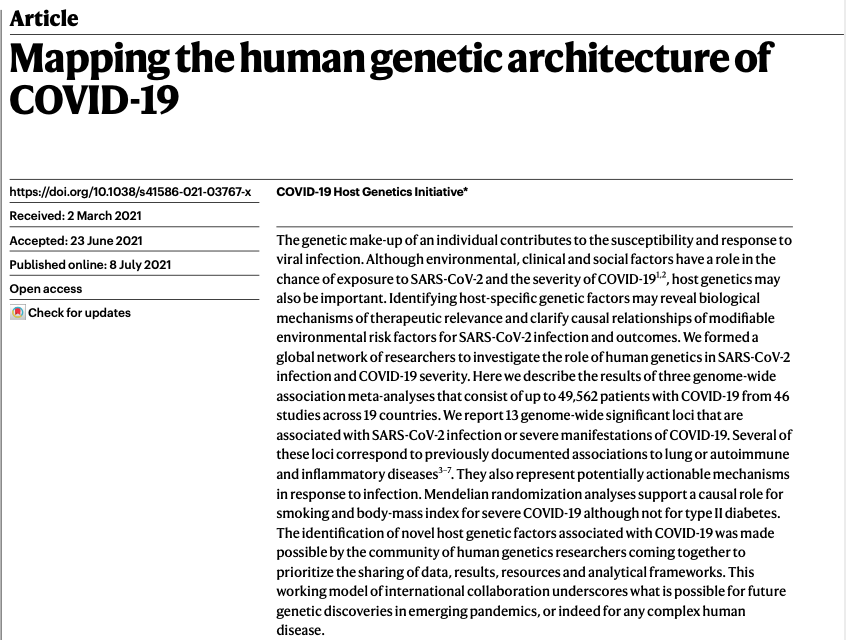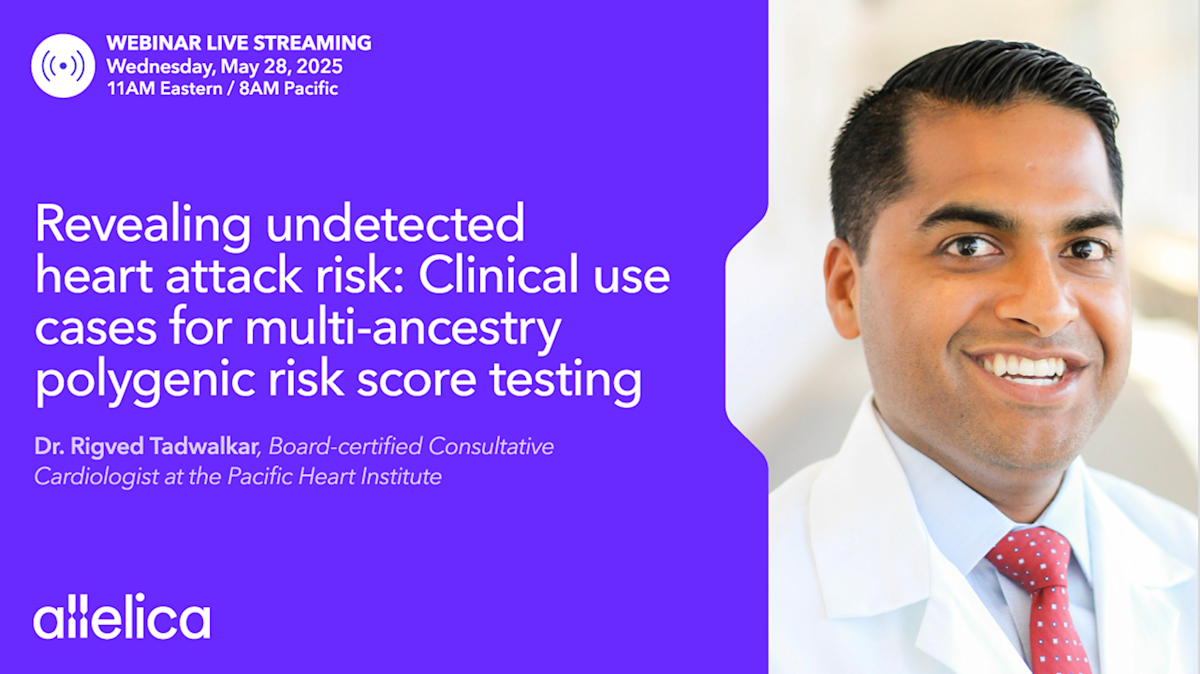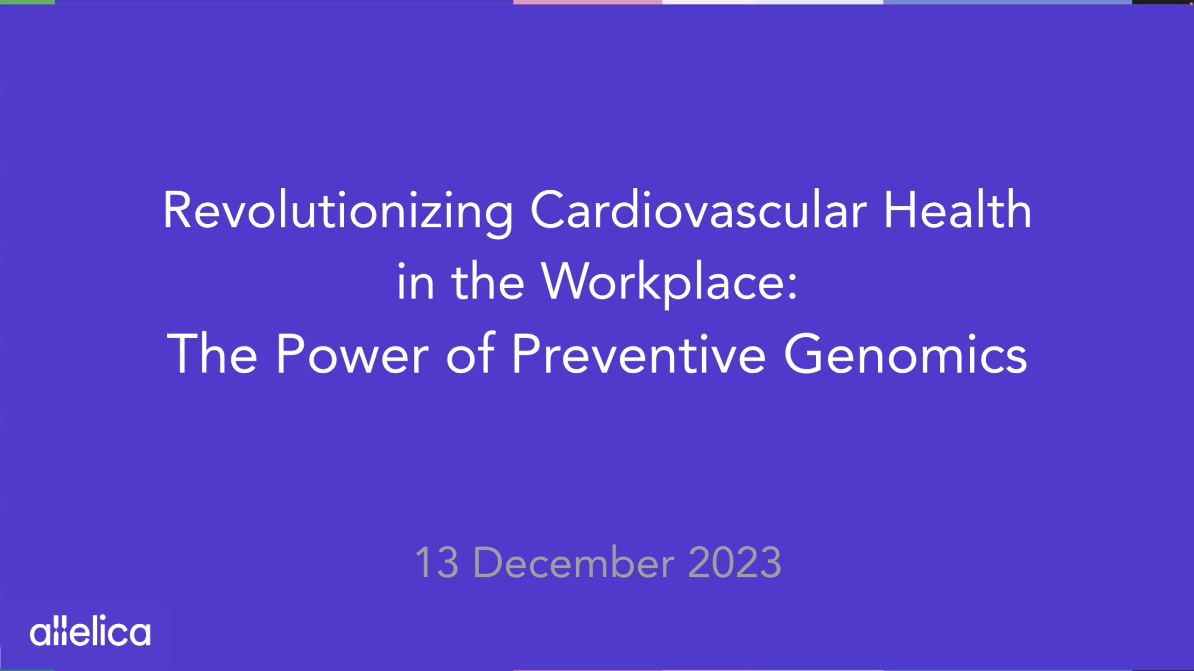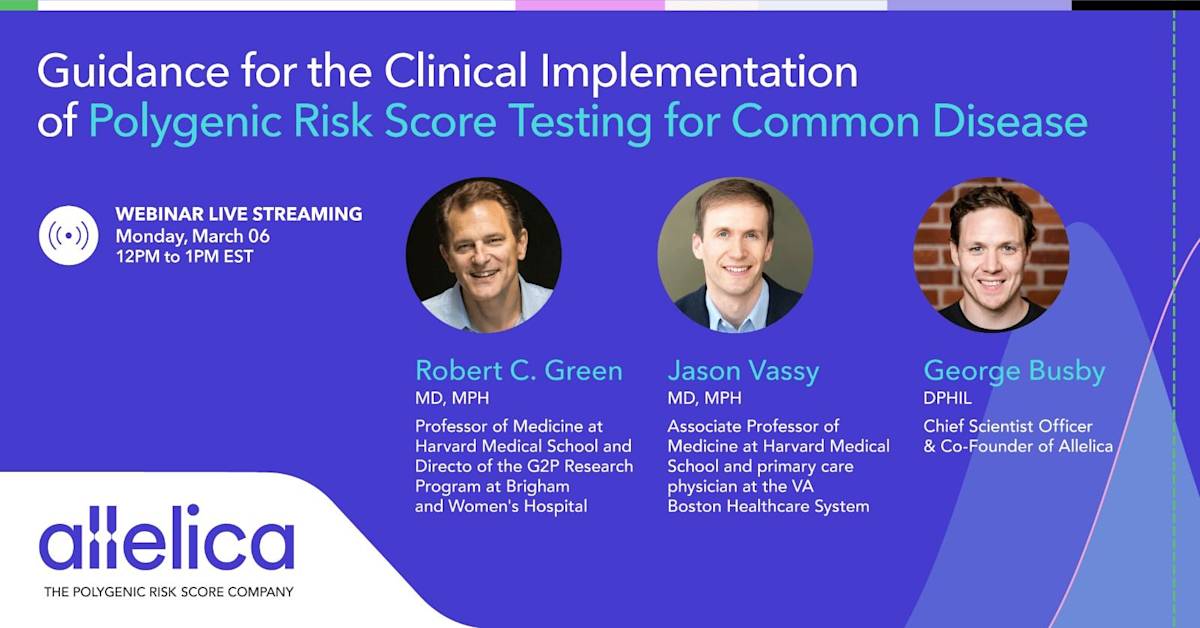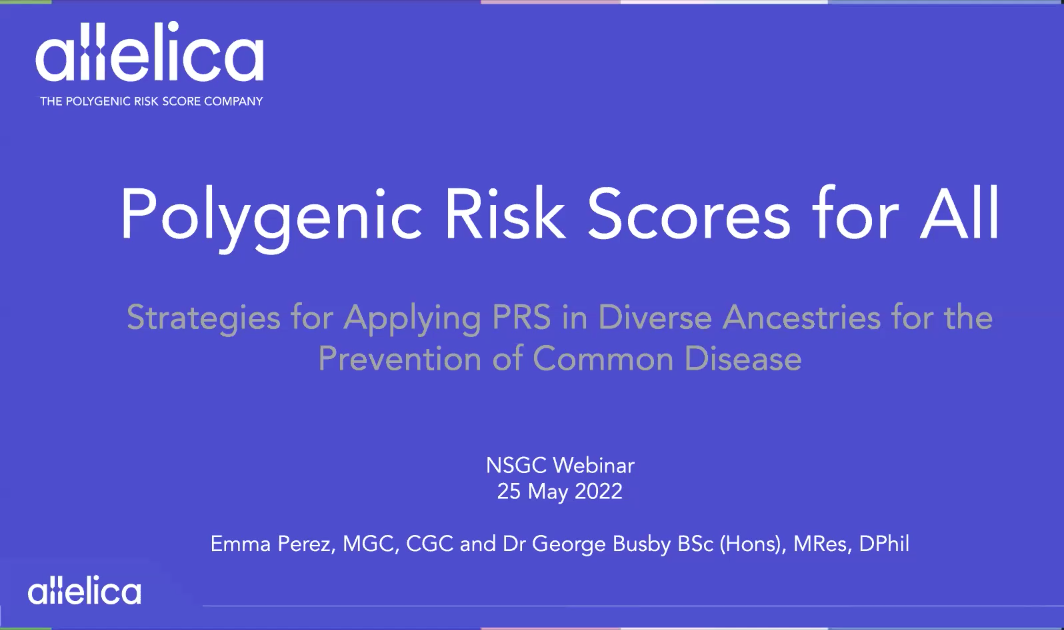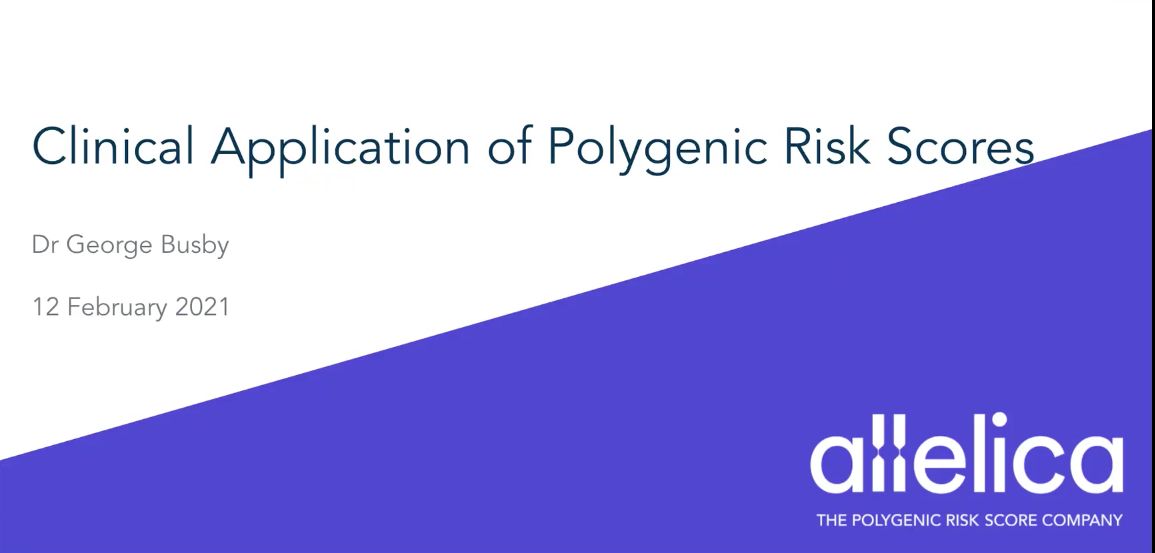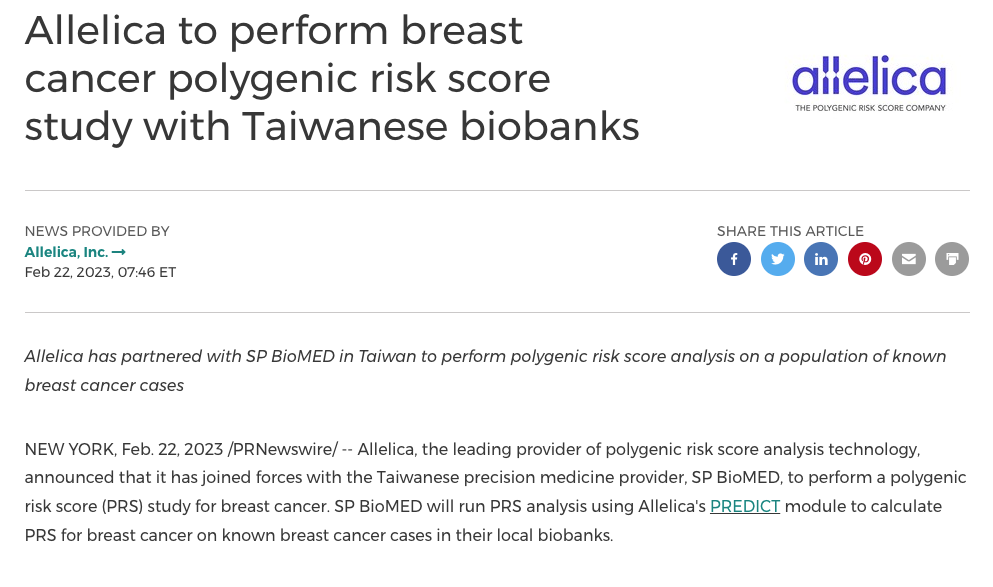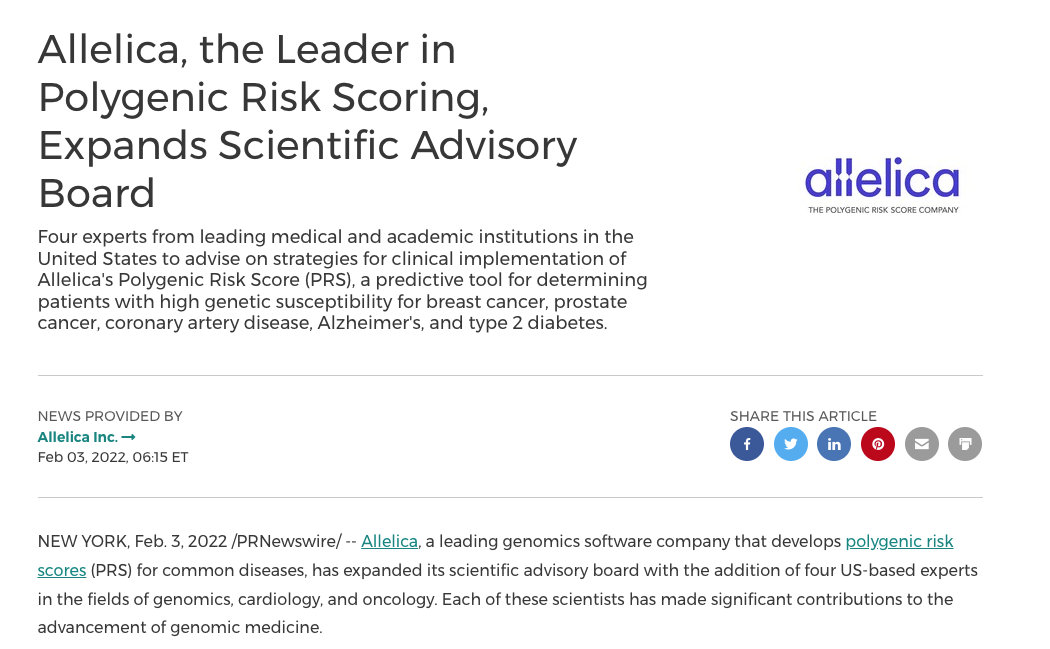Resources
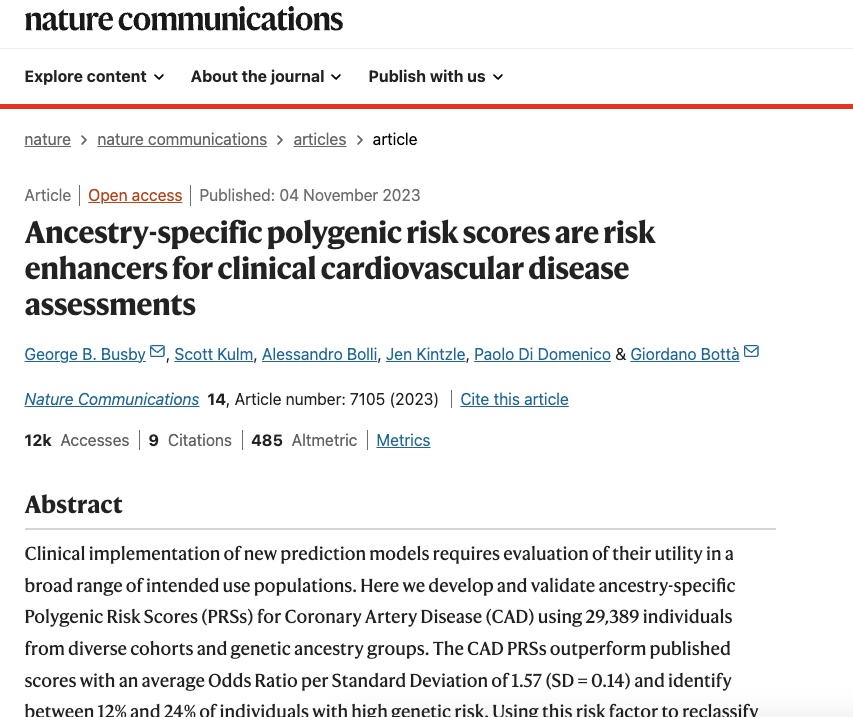
Nature Communications
Ancestry-specific polygenic risk scores are risk enhancers for clinical cardiovascular disease assessments
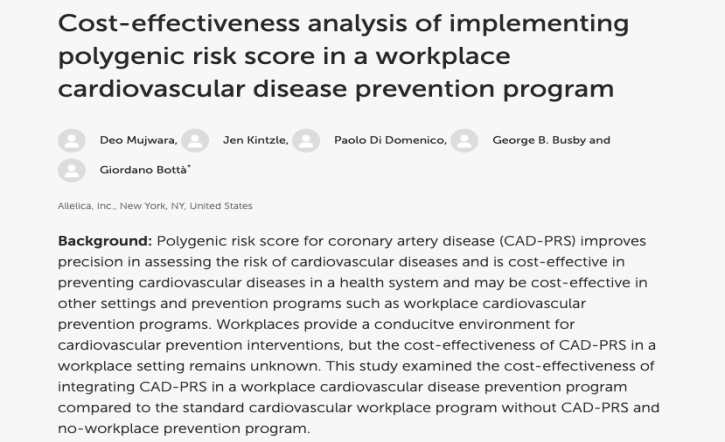
Frontiers
Cost-effectiveness analysis of implementing polygenic risk score in a workplace cardiovascular disease prevention program
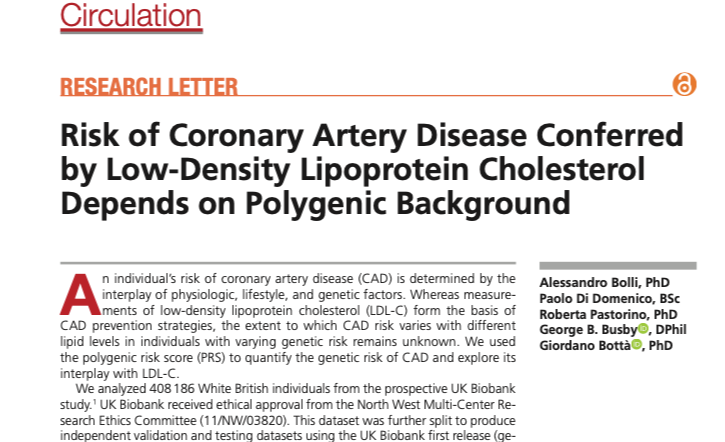
Circulation
Risk of Coronary Artery Disease Conferred by Low-Density Lipoprotein Cholesterol Depends on Polygenic Background
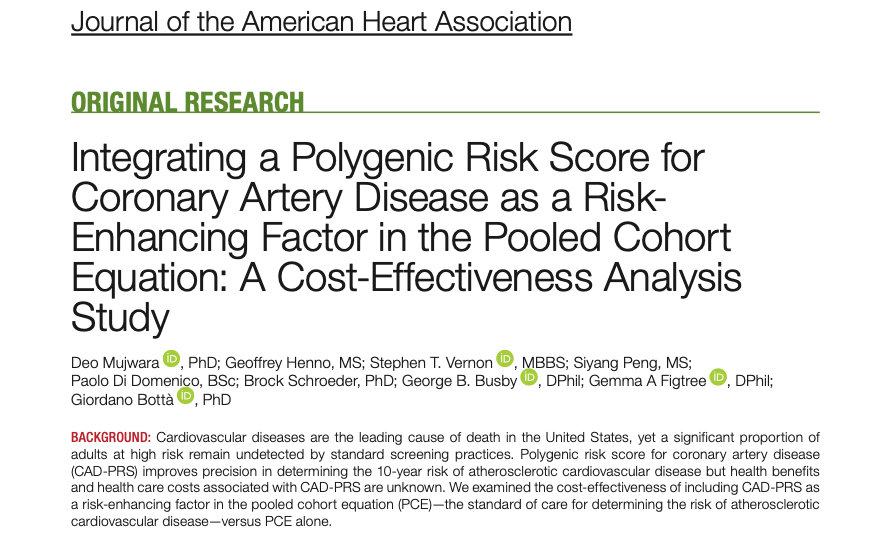
Journal of the American Heart Association
Integrating a Polygenic Risk Score for Coronary Artery Disease as a RiskEnhancing Factor in the Pooled Cohort Equation: A Cost-Effectiveness Analysis Study
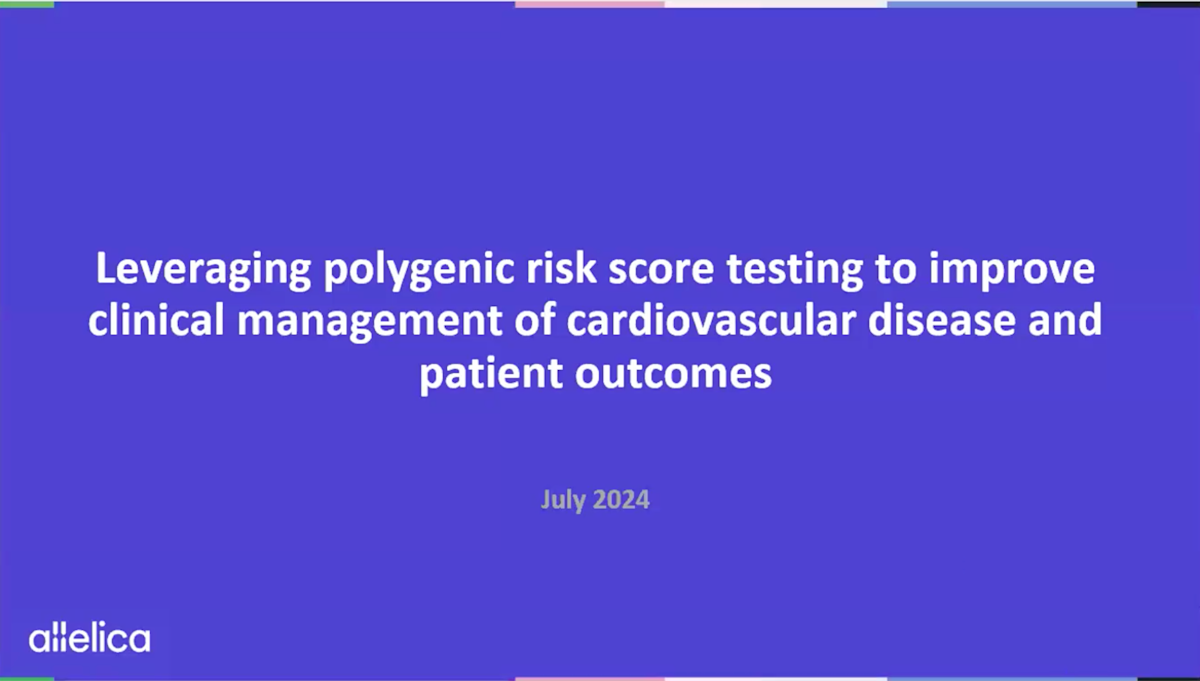
Leveraging polygenic risk score testing to improve clinical management of cardiovascular disease and patient outcomes
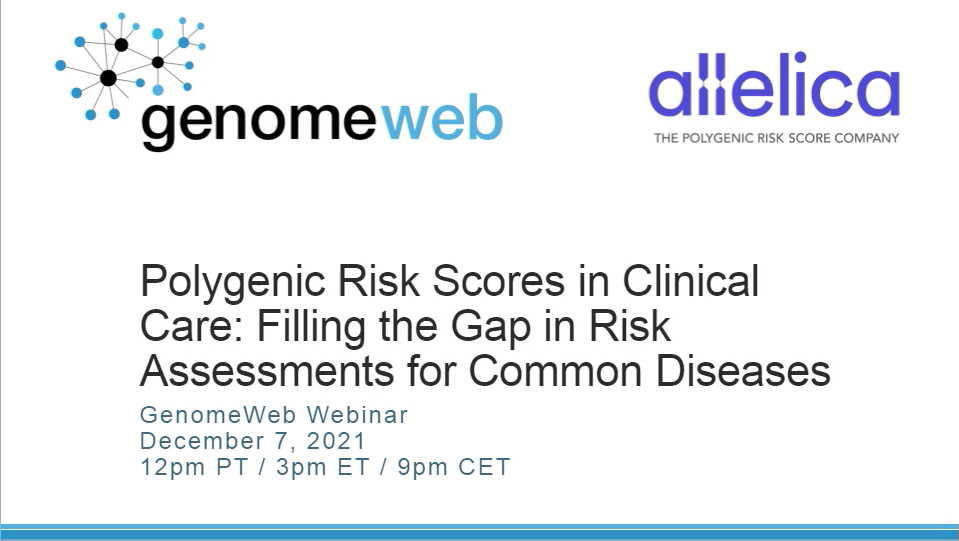
Polygenic Risk Scores in Clinical Care Filling the Gap in Risk Assessments for Common Diseases
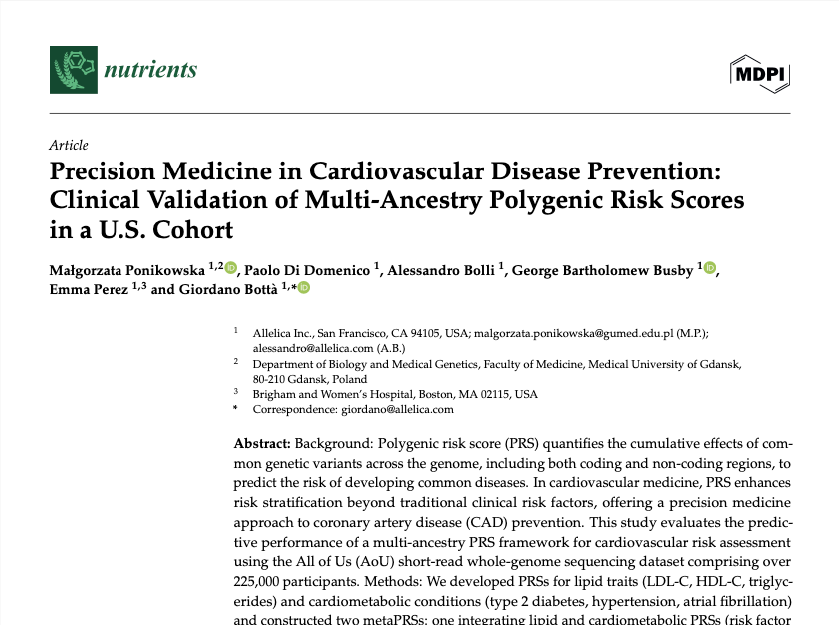
Impact of Lipids on Cardiovascular Health
Precision Medicine in Cardiovascular Disease Prevention: Clinical Validation of Multi-Ancestry Polygenic Risk Scores in a U.S. Cohort
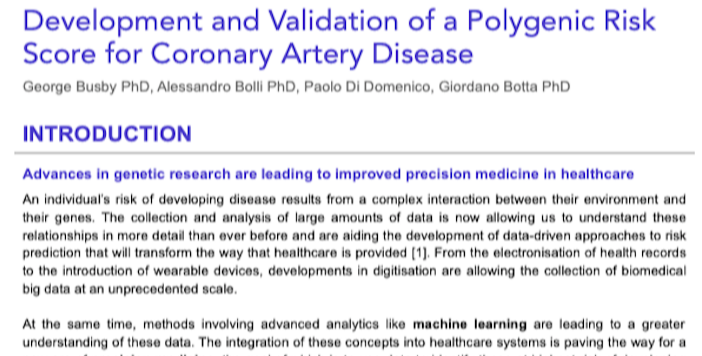
Allelica White Paper: PRS for Coronary Artery Disease
Development and Validation of a Polygenic Risk Score for Coronary Artery Disease
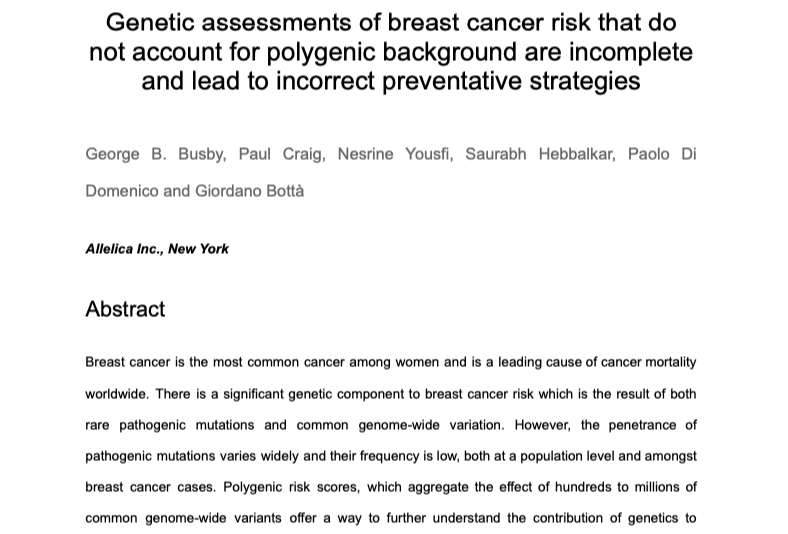
medRxiv
Genetic assessments of breast cancer risk that do not account for polygenic background are incomplete and lead to incorrect preventative strategies
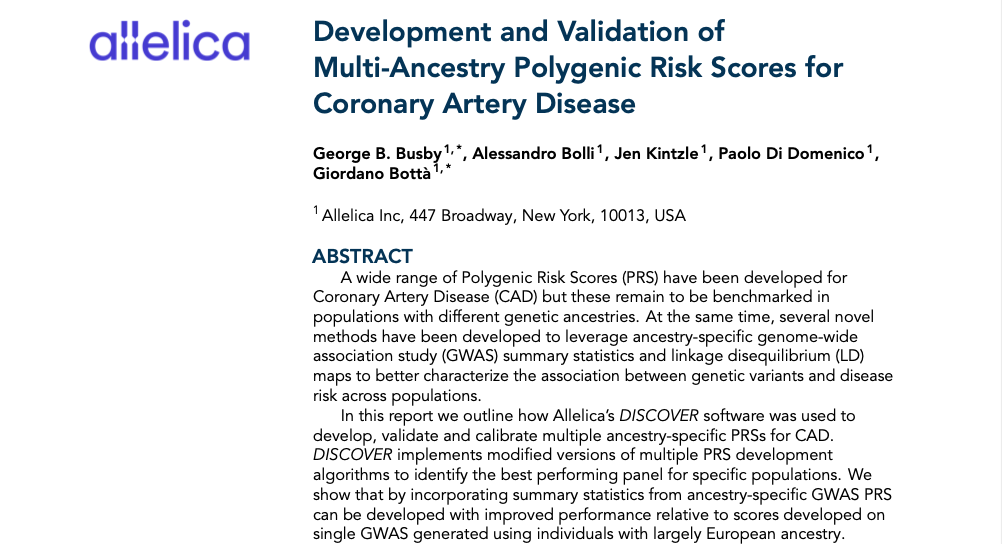
Allelica White Paper: Multi Ancestry PRS for Coronary Artery Disease
Development and Validation of Multi-Ancestry Polygenic Risk Scores for Coronary Artery Disease
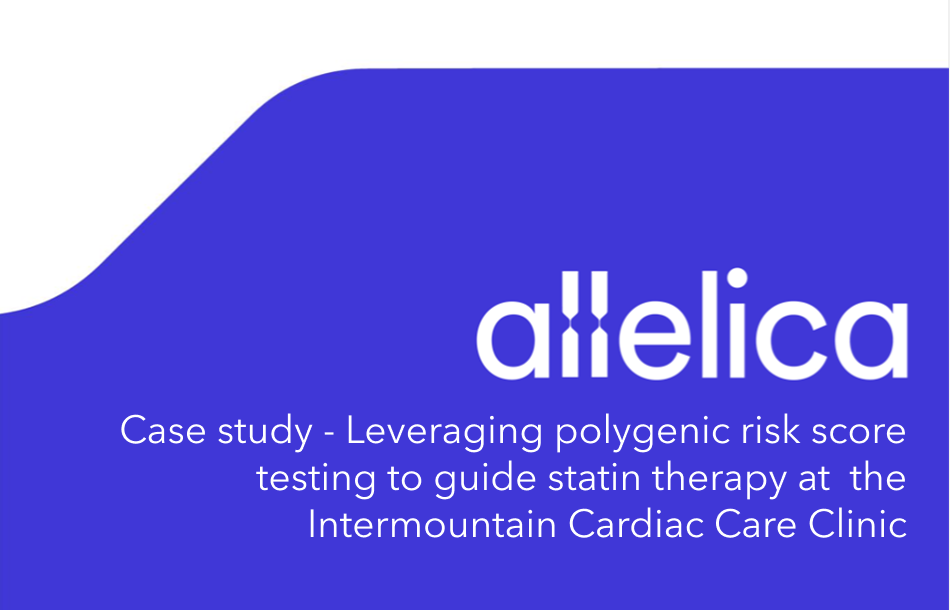
Case study - leveraging polygenic risk score testing to guide statin therapy at the Intermountain Cardiac Care Clinic
PRS has become a ‘tie-breaker’ for clinical decision-making in patients with uncertain risk profiles, giving us confidence we need to make the most effective treatment decisions.
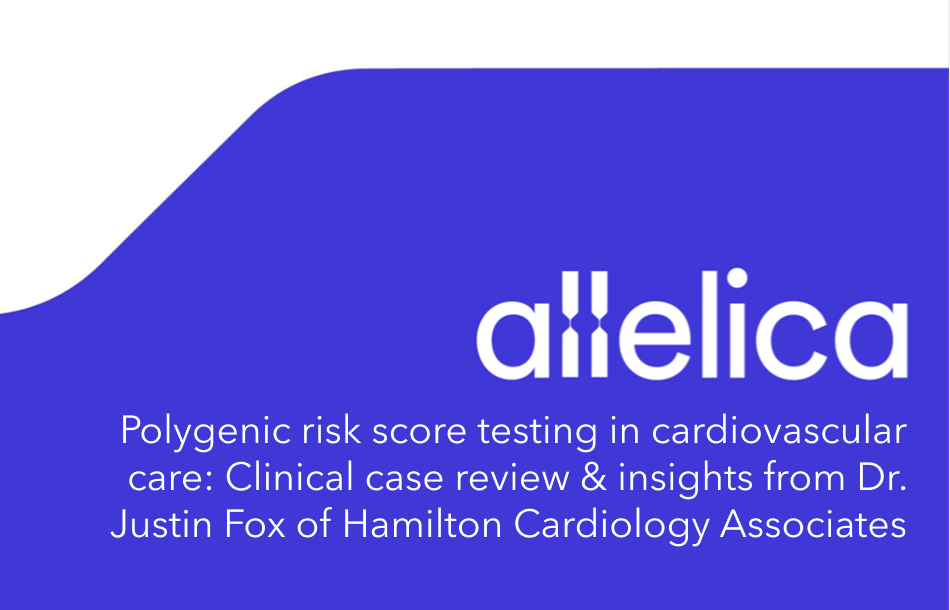
Polygenic risk score testing in cardiovascular care: Clinical case review & insights from Dr. Justin Fox of Hamilton Cardiology Associates
PRS testing helps guide decisions in uncertain cases, brings clarity to patients with unexplained events, and facilitates more personalized, thoughtful discussions about risk.

Allelica Clinical Use Case Coronary Artery Disease PRS
This document outlines an approach for using a Polygenic Risk Score (PRS) in a Coronary Artery Disease (CAD) clinical pathway.
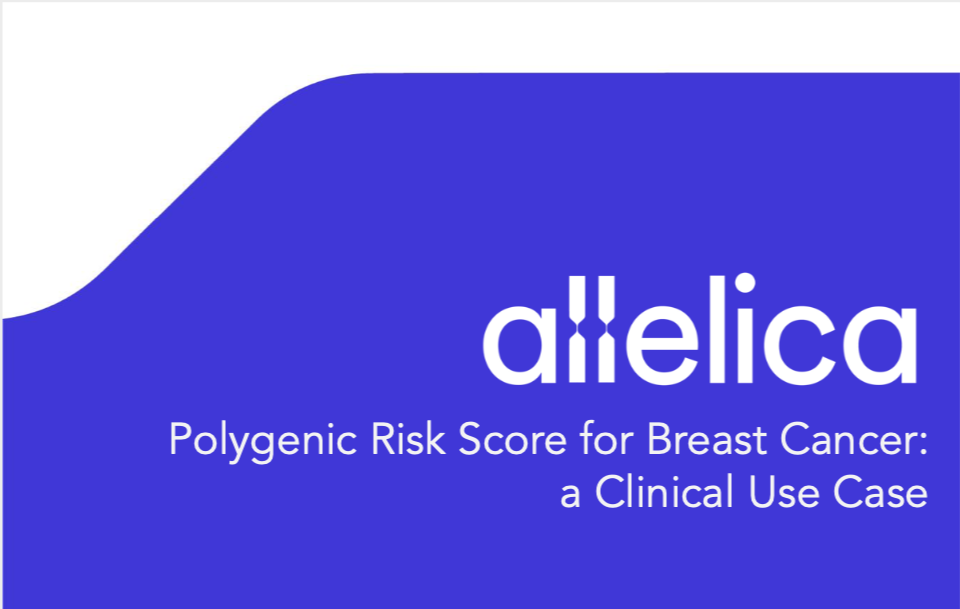
Polygenic Risk Score for Breast Cancer: a Clinical Use Case
This document outlines an approach for using a Polygenic Risk Score (PRS) in a breast cancer clinical pathway.

Allelica - Introduction to Polygenic Risk Score
Allelica - Introduction to Polygenic Risk Score

The PREDICT Module
The PREDICT module equips genetics laboratories with a trusted software as a medical device for ancestry-informed PRS analysis and clinical-grade reporting.
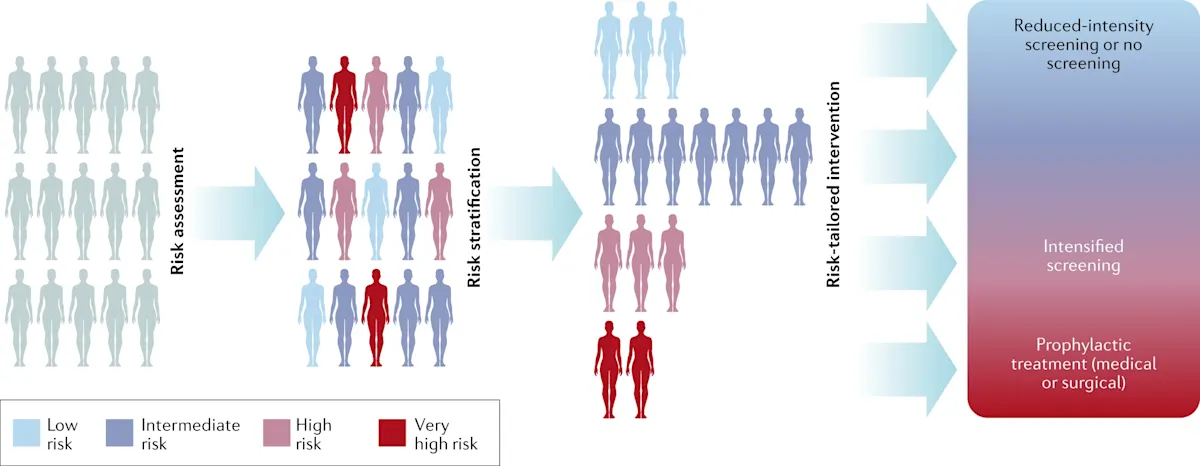
Polygenic risk scores for breast cancer prevention: a guide for physicians
A how-to guide for how to use breast cancer polygenic risk scores

The UK Biobank: unleashing the power of genome
A central goal of preventative medicine is to identify the people most at risk of disease early enough that something can be done…

Disease is Polygenic
In the late 19th Century, a Moravian monk named Gregor Mendel passed his time by running experiments cross-breeding different types of pea plant. Amongst his…

Beyond BRCA
Vast quantities of human DNA have been sequenced for biomedical research and clinicians, researchers and innovators are now beginning to focus on the next phase of the genomic revolution: translating these data into tools...

Genetics is actionable
In Allelica we’re very excited about the incredible advances that analyses of large DNA datasets are bringing to medicine. In addition to the increasingly…

Large Scale Genomics Datasets In the UK
We previously wrote about the enormous impact that the UK Biobank (UKBB) is having to translational research. Although the scientific outputs from this project are now beginning…

Coronary Artery Disease: Predicting risk through genetics
Within the last two decades, and upon completion of the world’s largest biological project in 2003, interest in the human genome and its effect on…

The DISCOVER Module: Seamlessly building new polygenic risk scores
A user friendly, cloud-based computing solution to build state-of-the-art, publication ready polygenic risk scores. The DISCOVER moduleallows users to build their own polygenic risk…

The VALIDATE module: Quantifying the power of PRS
Essential testing of your PRS on an independent population. In our previous articles outlining Allelica’s PRS pipeline we described how users can impute genotype or…

The PREDICT Module: Unlocking the power of genomics
In our previous articles on Allelica’s PRS pipeline, we ran through how you can use our DISCOVER module to build your own PRS for a disease or trait of interest, as well as how our VALIDATE module can be used to test the predictive power of…

Understanding the link between genetics, cholesterol and coronary artery disease
Cardiovascular disease is the leading cause of death worldwide, with recent estimates putting the global death toll at around 18 million each year. It is also a major burden on populations and health systems, contributing to…

Harnessing the power of PRS by combining standardized reporting with Allelica’s software
This week, scientists from the Clinical Genome Resource (ClinGen) Complex Disease Working Group and the Polygenic Score (PGS) Catalog published a paper in Nature introducing…
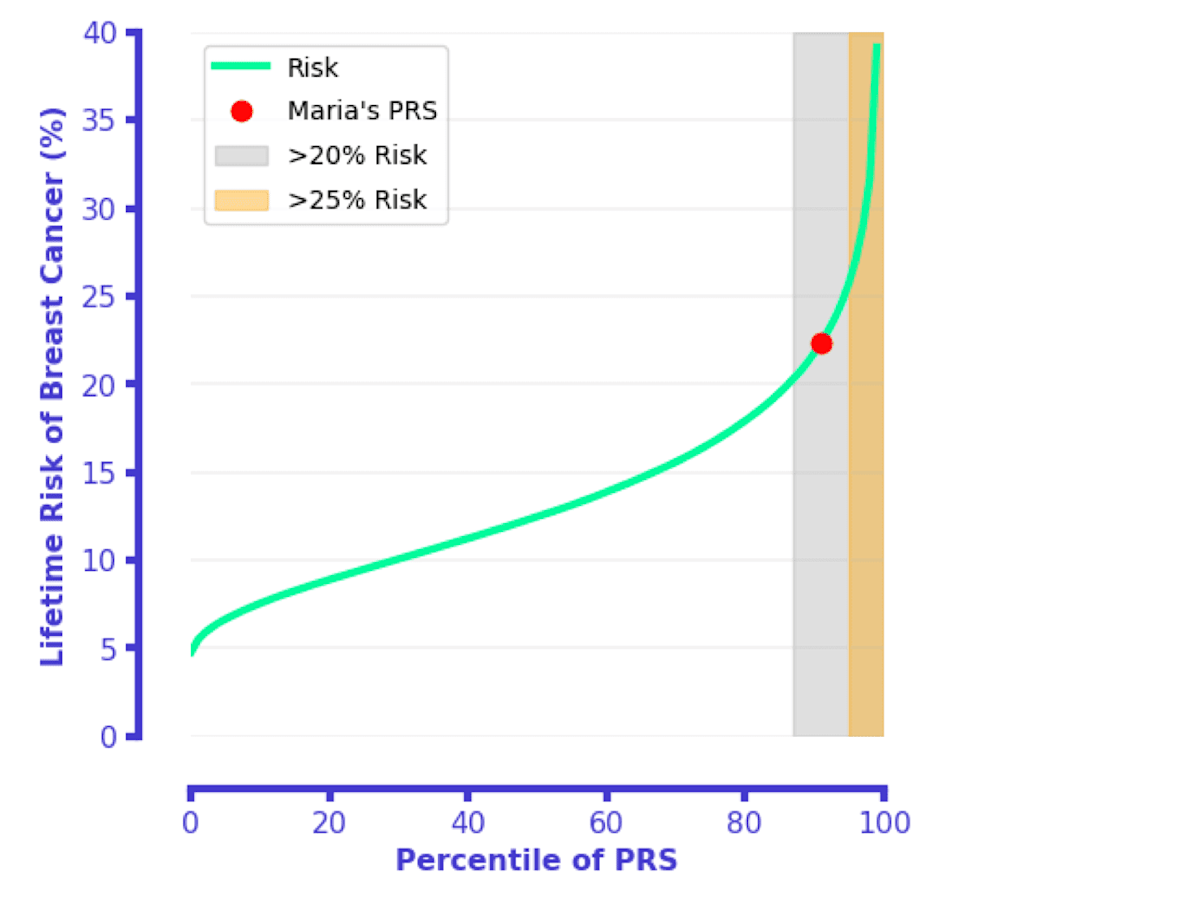
PRS-powered disease risk reporting
We’ve previously written about how you can use Allelica’s DISCOVER software to build new polygenic risk scores (PRS) and to deploy them at scale with PREDICT. While a PRS provides…

NSGC’s PRS Practice Resource: Your PRS one-stop shop
This year was kicked off by the publication of the NSGC Practice Resource for Clinical Counseling/Translation of Polygenic Scores, put together by Wand et al. — a stellar team of leaders in the PRS field.

PRS & Shared Decision Making
A valid question that is often asked when discussing PRS implementation is “how will this information be used in clinical care in the absence of clinical guidelines for PRS”? One approach is to ensure PRS risk information is presented in a way that...

How to superpower a clinical trial with PRS
Clinical trials are an essential part of the pharmaceutical industry, but they face many challenges. One of the significant obstacles is the high rate of failure, with over 90% of drug candidates that...

Using polygenic risk scores to enhance cardiovascular disease risk prediction
Cardiovascular diseases — a general term for a suite of diseases that affect the heart or blood vessels — account for one in three deaths globally and are a major drain on public health spending. Our risk of cardiovascular disease increases as we age...

How to ensure lasting employee engagement in your workplace health program
Maintaining a healthy and engaged workforce is a cornerstone of a successful organization. Workplace health programs not only enhance the well-being of employees but also contribute to increased productivity, reduced absenteeism, and...

Five Considerations for Selecting a Workplace Wellness Program: How to Achieve Strong ROI for Employers & Long-Term Benefits for Employees
In the fast-paced world of business, ensuring the well-being of employees has become a top priority for innovative employers. A successful wellness program not only fosters a culture of healthier and happier employees, but also yields impressive returns...

Cardiovascular disease in the workplace: how to leverage data-driven solutions to the biggest health challenge facing employers
In today’s fast-paced corporate landscape, the health and well-being of employees are paramount for sustained productivity and success. One of the most prevalent health challenges facing workplaces is cardiovascular disease, particularly...

Building the environment for genetic risk prediction for cardiovascular disease
Bringing a new medical test to market requires generating and compiling a range of evidence. A commonly used framework for evaluating novel genetic tests involves describing an assessment of three main aspects of the test: its analytical validity,...

The IMPUTE Module: Enriching Low-Coverage and Microarray data
Fast and scalable genome imputation of Low-Coverage WGS and Microarray data in just minutes. Allelica’s PRS pipeline is built around a set of interconnected modules…

It is time for polygenic risk scores to be used in breast cancer risk assessments
Much of the development of polygenic risk scores (PRSs) centers on assessing their ability to predict risk in different populations. This undoubtedly provides assurance of their clinical validity, which is a crucial component of PRS development...

Using polygenic risk scores to identify people who respond better to drugs
We have previously reported how polygenic risk scores (PRS) can be used to identify people at high genetic risk of disease, paving the way for their use as tools for the prevention of common, chronic disease...

Implementing polygenic risk scores in the clinic: Use cases for cardiovascular disease risk management
The evidence is undeniable — polygenic risk score (PRS) testing enables healthcare providers to identify more high risk patients at an earlier stage, leading to better risk management and improved outcomes...

Doctors: Don’t let high risk patients leave your office
The publication of the updated Global Burden of Disease (GBD) Reports is a timely reminder of the many different diseases that affect the global population. With somewhat morbid curiosity, it’s fascinating to...

Allelica and Labcorp collaborate for multi-ancestry polygenic risk score analysis
As Allelica continues to work toward enhancing accessible data-driven healthcare, we are proud to announce a collaboration with Labcorp to ensure polygenic and monogenic risk factors are assessed and accounted for in the patient journey...

Save time and money on your clinical trials
Randomized clinical trials are the gold standard approach for testing the efficacy and safety of novel therapeutics in real world populations and are essential for bringing drugs safely to market. However, a number of variables make clinical trials...
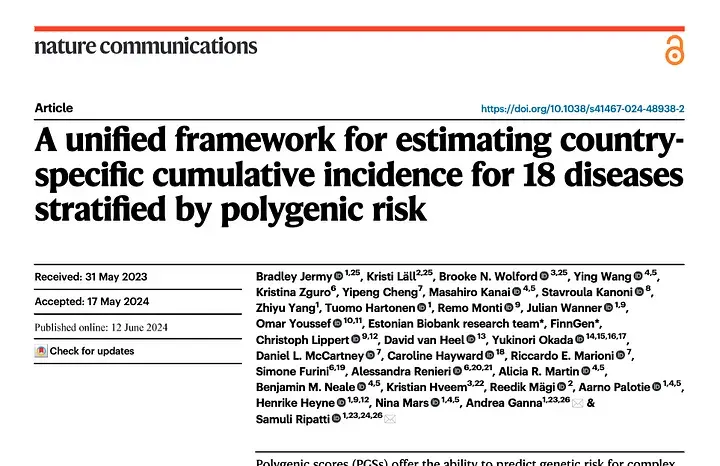
Estimating absolute risk of disease with PRSs
Allelica, Inc’s risk reports align with disease specific guidelines to communicate an individual’s risk of disease based on their PRS. Risk can be communicated as relative or absolute...
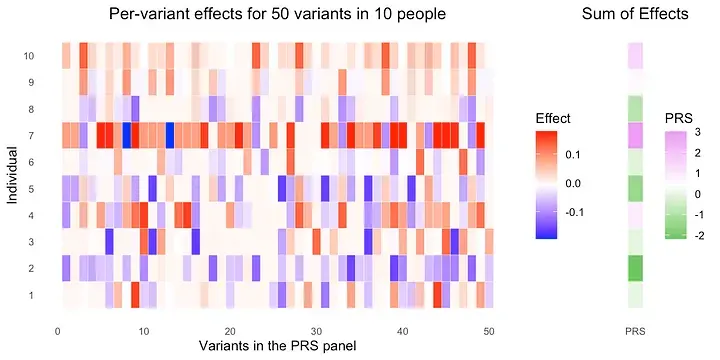
What is a polygenic risk score?
Allelica builds software that enables clinical genetics labs and health systems to deploy robust and accurate Polygenic Risk Scores (PRS), at scale. But what is a PRS?
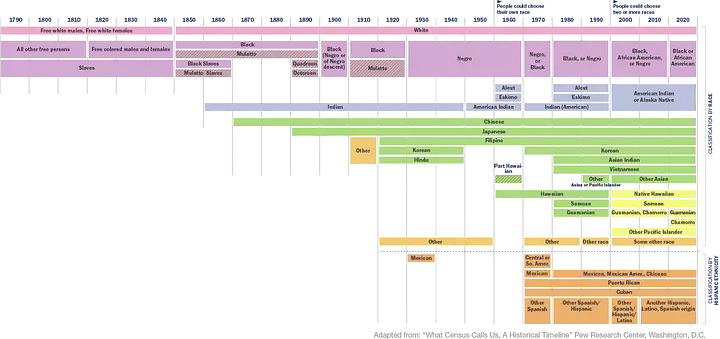
How to apply polygenic risk scores across diverse populations
Polygenic risk scores (PRS) predict the likelihood of developing complex diseases based on an individual’s genetic makeup. However, their application across different genetic ancestries presents numerous challenges.
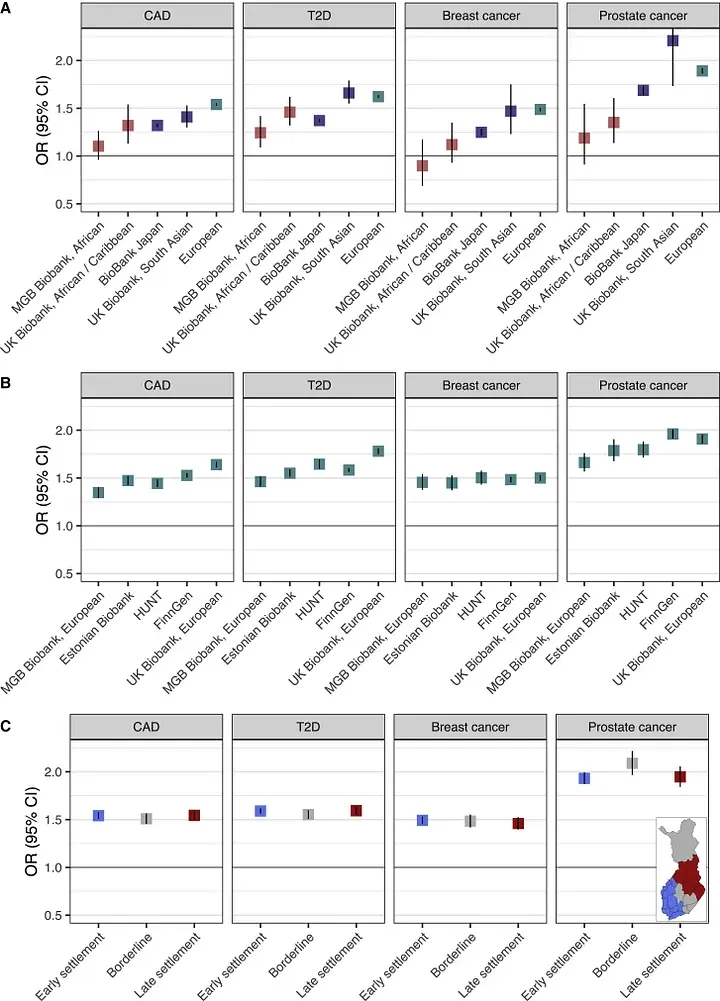
Allelica’s ancestry first approach for clinical PRS implementation
Polygenic Risk Scores (PRS) are a powerful tool in precision medicine, offering insights into an individual’s genetic predisposition to various diseases.
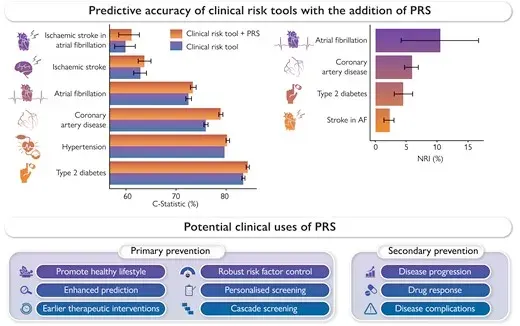
Harnessing polygenic risk scores for cardiovascular disease prevention: A guide for physicians
Atherosclerotic Cardiovascular disease (ASCVD) remains the leading cause of morbidity and mortality worldwide.
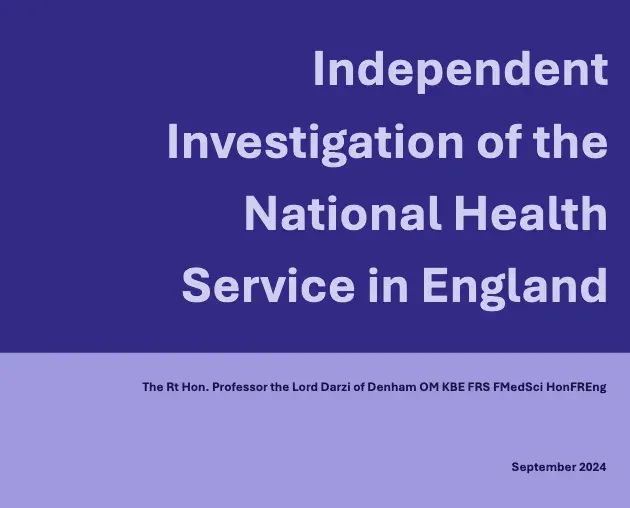
Leveraging Genomics to Empower the Future of the NHS: Aligning with the Darzi Review’s Vision
Lord Darzi’s Independent investigation of the NHS in England
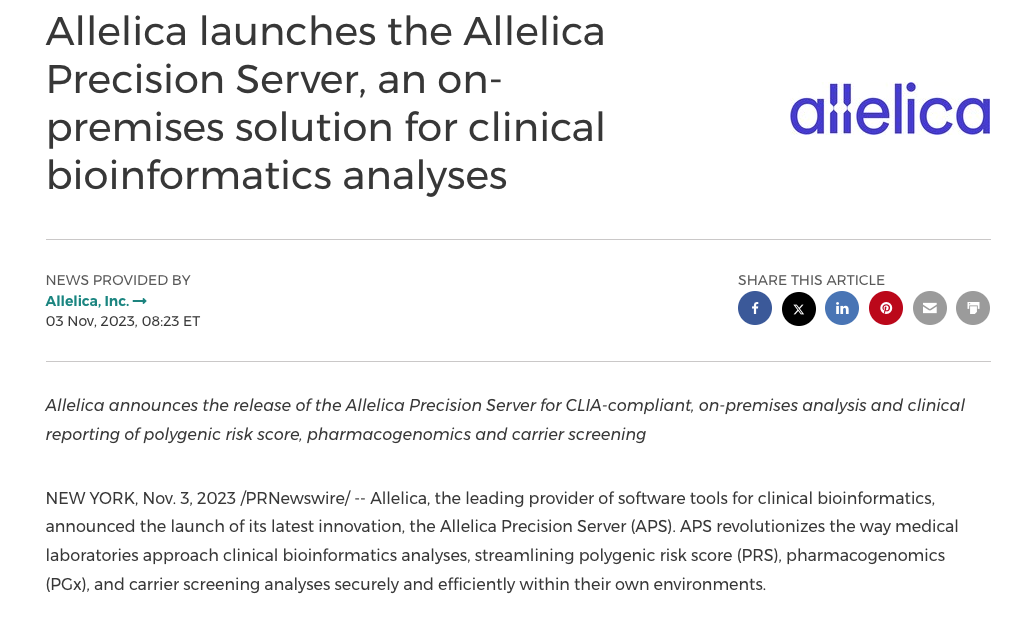
Allelica announces the release of the Allelica Precision Server for CLIA-compliant, on-premises analysis and clinical reporting of polygenic risk score, pharmacogenomics and carrier screening
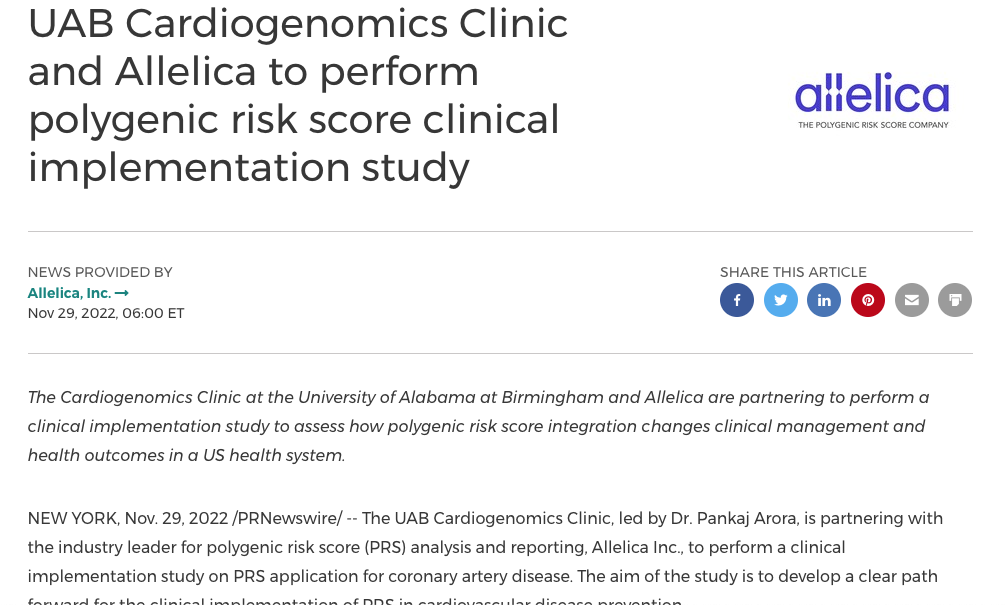
UAB Cardiogenomics Clinic and Allelica to perform polygenic risk score clinical implementation study
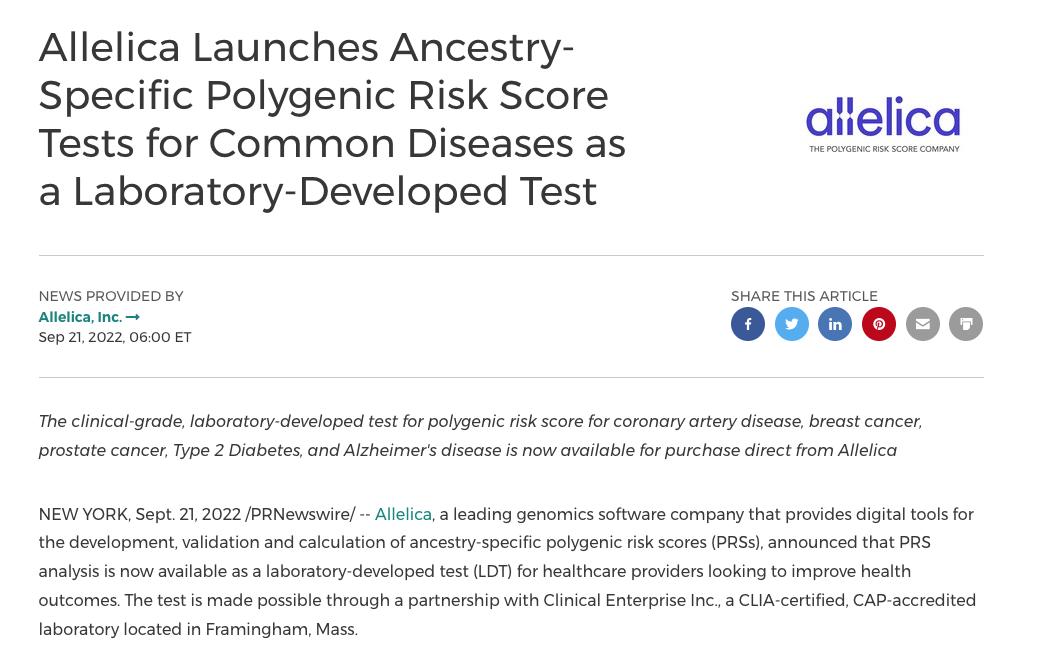
Allelica Launches Ancestry-Specific Polygenic Risk Score Tests for Common Diseases as a Laboratory-Developed Test
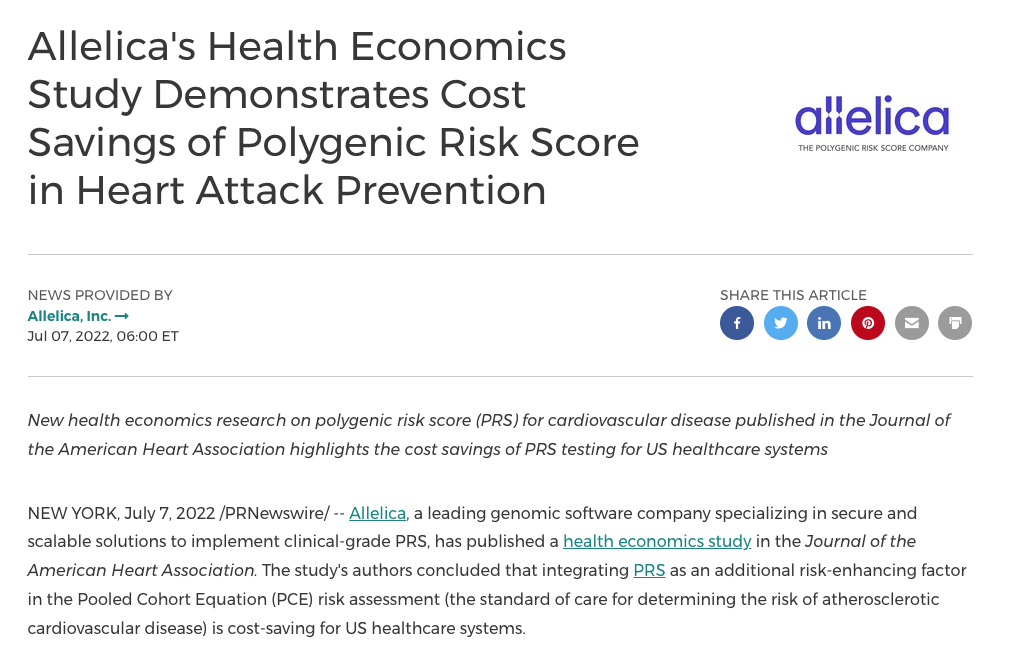
Allelica's Health Economics Study Demonstrates Cost Savings of Polygenic Risk Score in Heart Attack Prevention
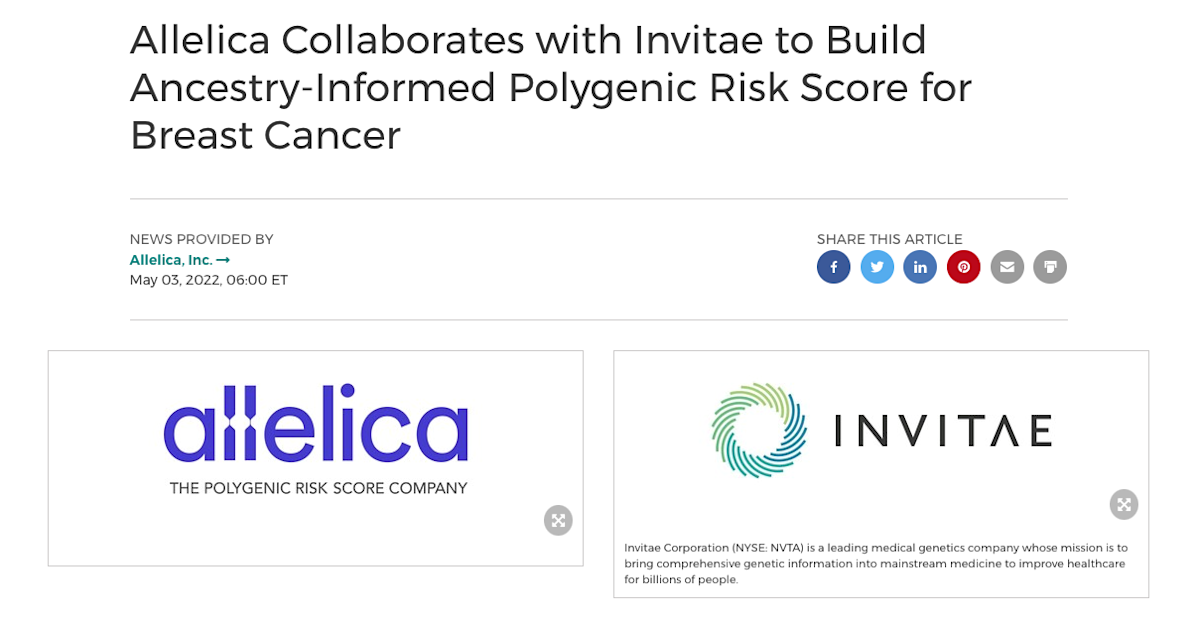
Allelica Collaborates with Invitae to Build Ancestry-Informed Polygenic Risk Score for Breast Cancer
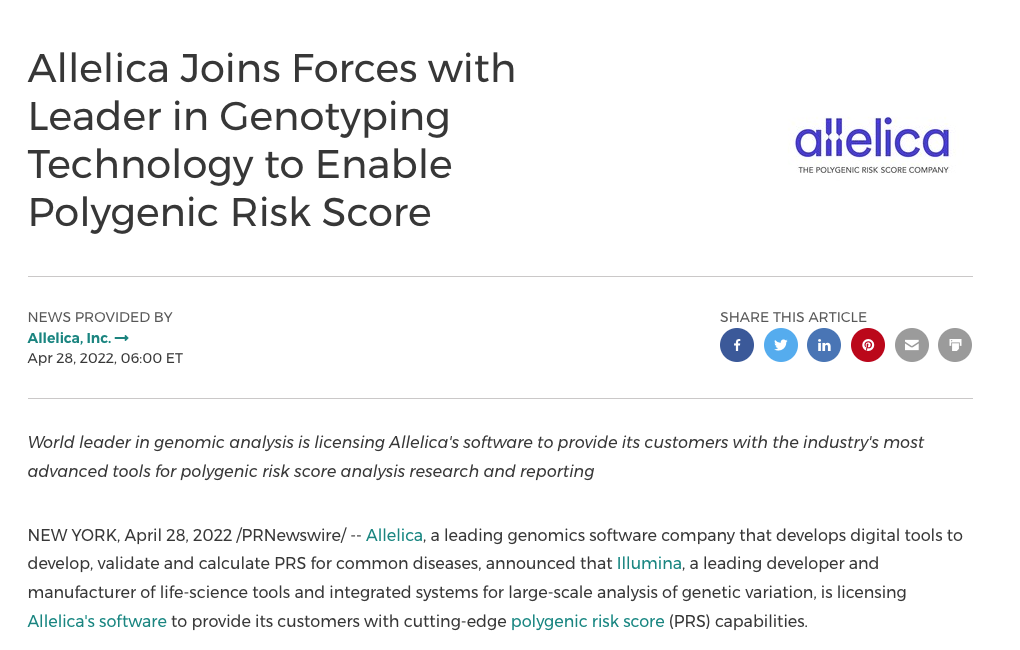
Allelica Joins Forces with Leader in Genotyping Technology to Enable Polygenic Risk Score
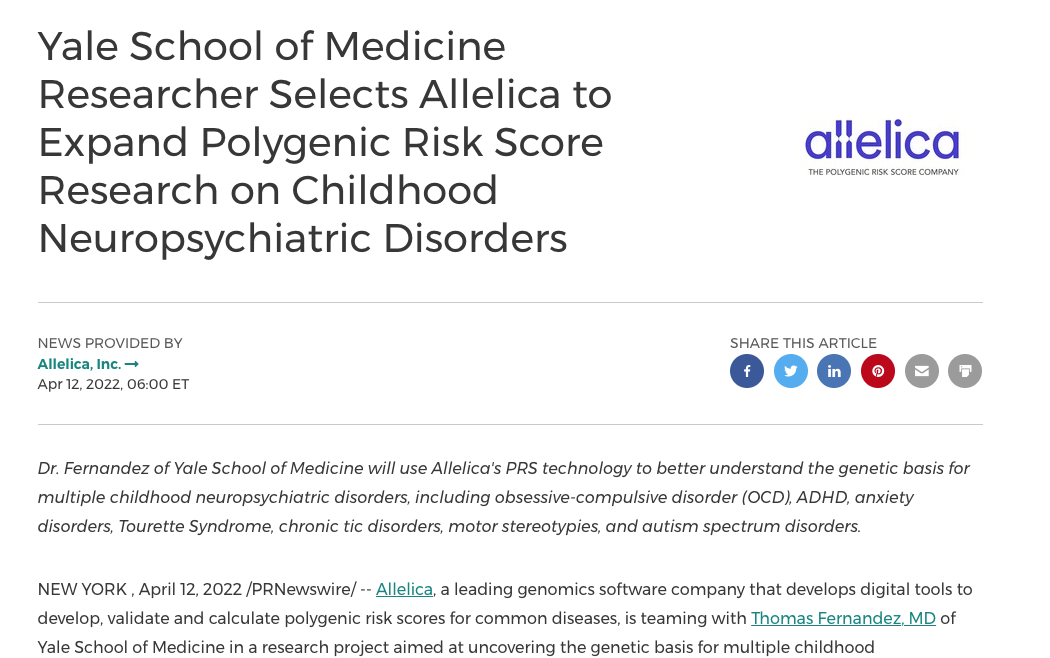
Yale School of Medicine Researcher Selects Allelica to Expand Polygenic Risk Score Research on Childhood Neuropsychiatric Disorders

